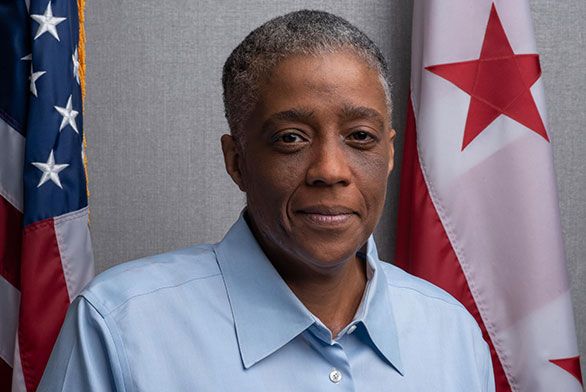How Studying Philosophy Helped Jocelyn Bramble (AGI98) Succeed at Law
January 12, 2024 | By Andrew Wice
Jocelyn Bramble (AGI98) took an indirect route to her law career. But her philosophical studies, which reached their height at St. John’s College, provided an intellectual and scholarly framework she still relies upon today. Undermining the false conflict between metaphysical and practical education, Bramble illustrates what an intrepid seeker of wisdom can achieve in any field.

Emerging from Dartmouth College with a degree in philosophy, Bramble had plenty of options but no clear direction. Pursuing a master’s degree in that subject, she joined the Graduate Institute in Annapolis.
“We were all at St. John’s just for the love of knowledge,” she says. “I was there because I wanted to spend time with really smart people. And I just loved it. I loved the tutors. I loved the people and loved the discourse.”
The direct engagement with classic texts, she was alarmed to discover, was not limited to intellectual subjects. Bramble describes her initial encounter with more concrete material.
“Do I have to do this math and science? I’d been a philosophy major at Dartmouth and felt overwhelmed by this requirement. But people helped me see that it was all part of learning how to approach and think through everything that you encounter. So, I got into Euclid and I systematically went through the Elements. Life or work never comes in neat packages. You must be able to apply a share of analysis and deductive reasoning to them. Same thing I try to teach my kids.”
Bramble’s master’s thesis, on Wittgenstein’s private language argument, was a highlight of her time at St. John’s. Such a multi-disciplinary approach might not make sense at a PhD or prelaw graduate school that was strictly career oriented. However, the rigors of such studies perfectly prepared her for a lifetime of achievement in law. For the challenge to people today, Bramble notes, is not how to acquire information, but rather how to scrutinize and assimilate it. When she changed her focus from philosophy to jurisprudence, the skills she developed at St. John’s served her well at Harvard Law School, according to Bramble.
“I’ve been able to succeed in my career thanks to my training in how to analyze and synthesize information. Knowing what questions to ask, when to listen, and when to challenge, are the skills that ultimately St. John’s is all about. It’s about encountering information, wrestling with great thinkers, listening to your colleagues, and the dialogue with your colleagues.”
After years in private practice, Bramble until recently worked for the District of Columbia Department of Insurance, Securities and Banking. The agency is the front line of defense for consumers of these services in the District of Columbia. As general counsel, Bramble’s background in federal securities law, and her previous experiences at a law firm, were essential tools for keeping up with new regulatory challenges, such as cryptocurrency. However, the techniques and methods she acquired at St. John’s College have proven invaluable for her evolution from philosophy to law, and back again.
“St. John’s, I would argue, can be a launching pad for any kind of career,” Bramble reflects. “It was a very easy transition to the law for me. Being a lawyer is argumentation, reading, analysis. The interpretive skills instilled in me from my time at St. John’s I use every single day, in my profession and in my life.”

